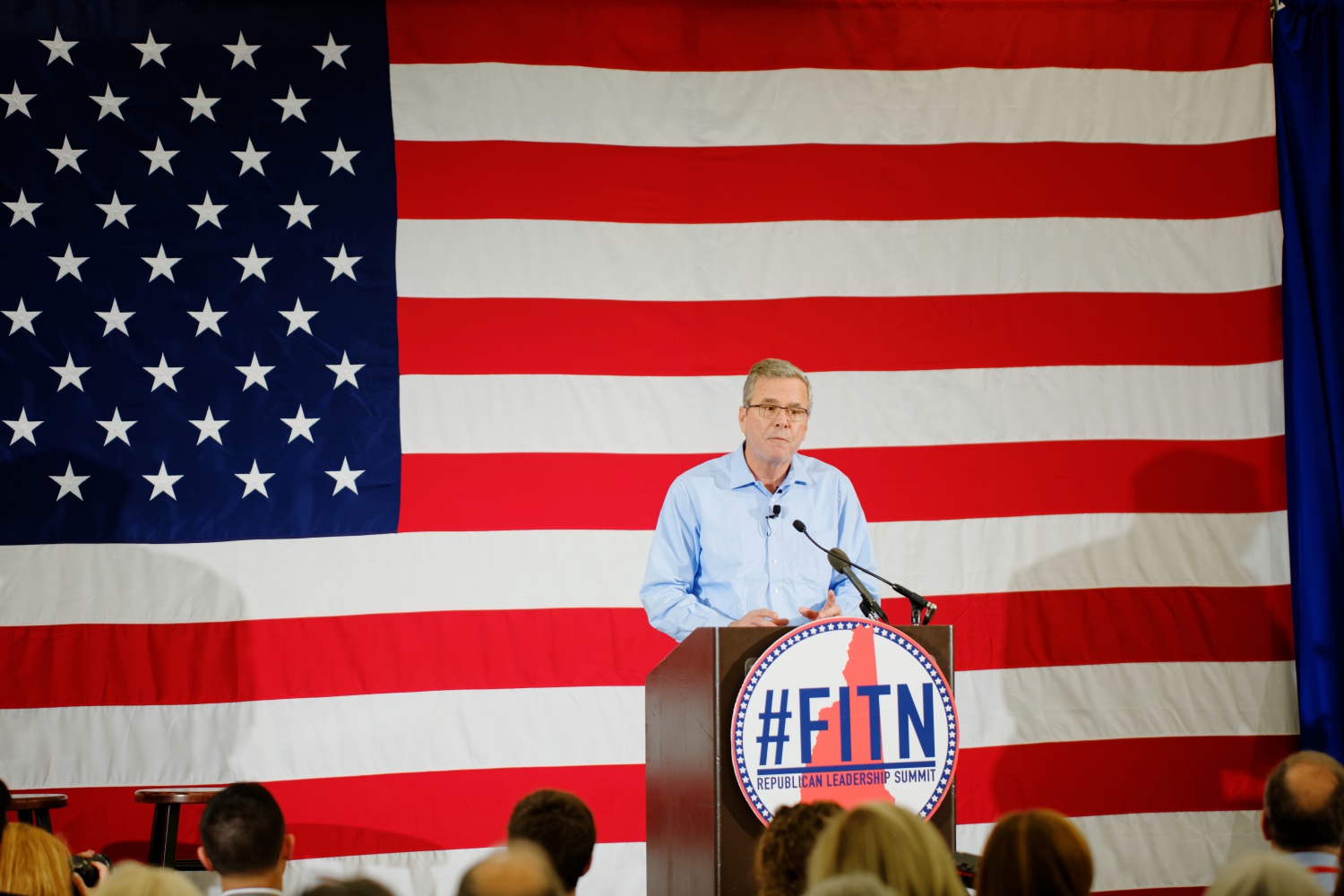The presumed frontrunner for the 2016 Republican presidential nomination had raised millions of dollars, traveled around the country, and given speech after speech about the future of the nation, all before declaring himself a candidate.
If you want to cut Jeb Bush’s newly-minted campaign a check, you’ll be bound by current campaign contribution limits to $2,700. Until he formally announced his candidacy on June 15, Bush’s Right to Rise Super PAC enabled the former Florida governor to rack up as much money as possible, since Super PACs do not have contribution limits, unlike campaigns. As a non-candidate, Bush was able to fundraise for Right to Rise directly.
And fundraise he did. Bush claimed his Super PAC had raised more money in 100 days than any other Republican group in recent years, and, according to the New York Times, “he’s held a staggering number of fund-raising events since the beginning of the year.” While some analysts have questioned the figure, some allege that Bush will bank $100 million by mid-July.
Since the Citizens United decision and its ilk in 2010, Super PACs have been able to raise unlimited sums from donors who are not bound by contribution limits. As election law expert Richard Hasen describes, the legal rationale was based on the idea that “contributions to fund…independent spending couldn’t corrupt.”
The problem? This spending really isn’t independent – not when Bush has personally led around 70 fundraising events for the group. And it’s tough to swallow that any of the organizations in his network are independent, either: The Right to Rise Super PAC, regular, contribution-limited PAC, and nonprofit are controlled by people close to Bush, including a personal accountant and a former top aide.
Ultimately, this means that donors were able to give as much money as they wanted to Right to Rise, knowing that it would end up fueling Bush’s efforts on the campaign trail. “By signaling that Right to Rise is his campaign arm, Jeb Bush has broken down the wall between his super PAC and his campaign committee in the eyes of donors,” Hasen writes. Bush effectively rewrote campaign finance law by running an undeclared campaign for the presidency. So here’s the obvious question: How can such organizations possibly be considered independent?
That answer can only come from the Federal Election Commission. And let’s just say…we might be waiting a while.



